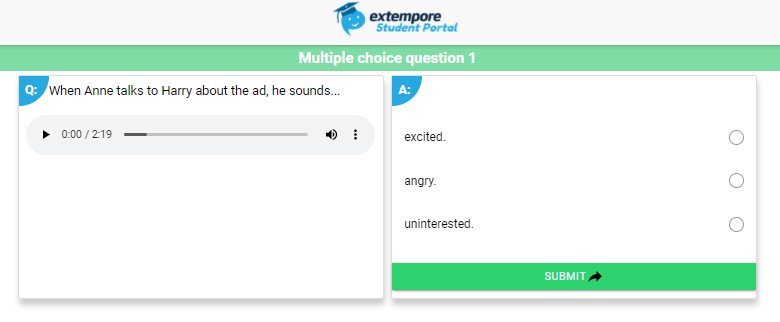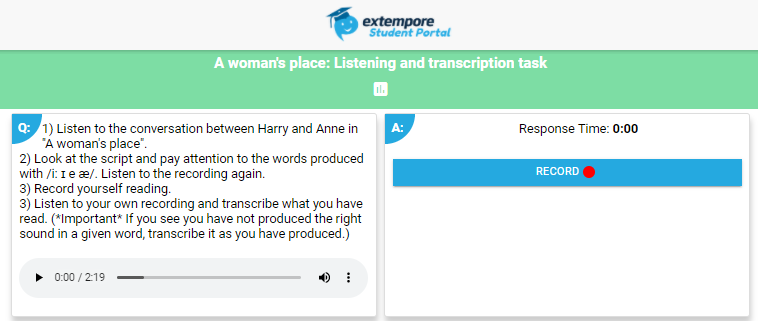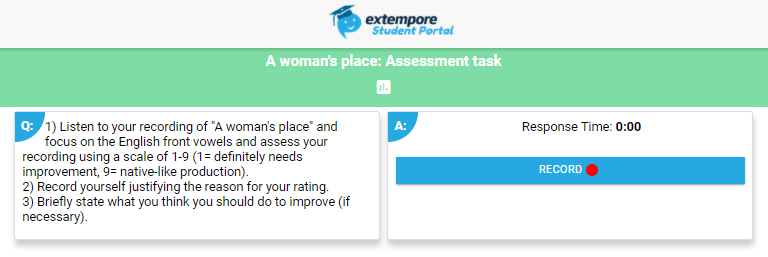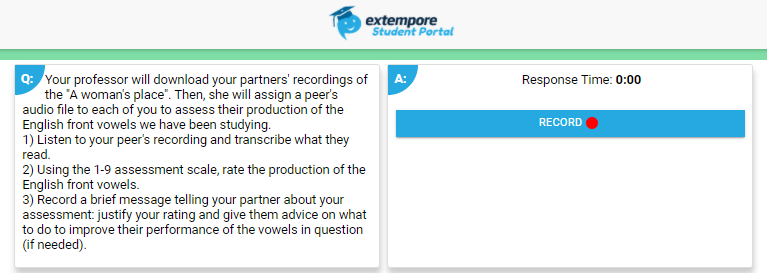
Designed using Backward Planning, integrative task support, the Flipped Classroom Model, Extempore, and other tech tools:
The current lesson sequence was designed thinking the steps suggested by the Backward Design (Wiggins and McTighe, 2005) presented below. These activities have all been part of a small scale study conducted 2020.
To help students retrieve schemata and work on global listening, they were made to work with the song Speechless (video below) and were asked to discuss what ‘speechless’ means in this particular setting. Next, they were asked to find articles online on differences between gender equality issues in the Eastern and Western Worlds. Finally, they completed a Mentimeter world cloud.
Once they were all set in context, Extempore came into play. Students now had a battery of listening and speaking tasks, with a succession of pronunciation tasks focusing on the four target sounds to be improved.
Students first listened for detail in the dialogue "A woman's place" from the 1950s. Afterwards, they completed a series of multiple-choice questions. In the conversation (listen below), a disgusted housewife (Anne) expresses her feelings towards the idea of giving a household appliance as a Christmas present.

Once students grew familiar with the context of situation, the next stage consisted in having the learner focus on pronunciation. The learner was now provided with the script of “A woman’s place” and, after doing silent reading, they had to record their version of the conversation, which was then supposed to be decoded by transcription into phonetic script and analysed as illustrated below, through self- and peer-assessments using a Likert scale and recorded feedback. In this sequence of tasks (see Extempore samples below), students were given the chance to make multiple attempts on account of the fact that:
- the recording was first taken as an instance of imitative practice, i.e., a pedagogical task.
- there was going to be analysis and self- and peer- assessment, which means that it would be necessary for the learner to listen and try to spot their own and peer’s mistakes and correct them.



Finally, there was a free communicative task using video mode. In this case, students only had one attempt.
Using video in this assessment enabled students to have a more comprehensive picture of their performance: not only could they evaluate the production of the L2 vowels in question from a perceptual viewpoint, but also they could observe how pronunciation was affected by the position and shape of the articulators (in this particular case, the lips and jaws).

The final task of the unit consisted in giving a TED-like talk on the question of women’s place in today’s world. To be able to complete the task, students were asked to work in groups. First, the class reviewed the key elements of a worthy TED talk they should take into account using this article. Then, there was a brainstorming session on topic-related issues for the talk using Padlet. Each group was asked to choose two of the issues addressed and expand on them. After that, time was allocated to let each group prepare their presentation for the following class. The TED-like talks were given and for the assessment, senior students were invited to be part of the audience. To create a purpose for listening to the visiting students, they were asked to write questions for each presenting group. The talks were recorded and as a final stage, there was an assessment of the overall performance with special emphasis on the production of the four key English vowels emphasized in each lesson.
This is post was created by Cristina Chiusano. Dr. Chiusano is a Department chair at Universiad de Montevideo, Uruguay, an EFL instructor at the Teacher Training Program and Translation Degrees, Unversidad de Montevideo, and a Spanish teacher of online courses at Abiline Chirsitian University. She has a MA in TEFL and Spanish as a Foreign Language as well as a PhD(c) in Linguistics.


